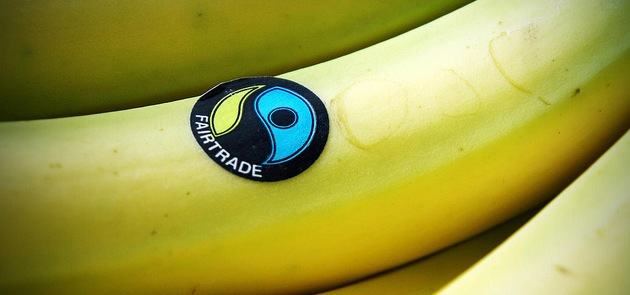Fair Trade Bananas Gain Ground
Fair Trade bananas continue to grow within the category thanks to consumer education efforts. In fact, Lauren Brock, communications specialist for Fair Trade USA, Oakland, Calif., said sales of Fair Trade bananas rose 40% from 2010 to 2011. Data from 2012 hasn’t been fully compiled, but Brock expects Fair Trade sales to be bigger than ever.
“According to research from Cone Communications, 94% of consumers are likely to switch brands, assuming price and quality are similar, to one that is associated with a good cause,” Brock said.
She credits the Fair Trade-certified label as being a key aspect of reaching those consumers.
“A recent 2011 Harvard study found that the Fair Trade-certified label alone has a large positive impact on sales,” she said.
“A substantial segment of consumers are willing to pay up to 8% more for a product bearing the Fair Trade Certified label.”
According to Simcha Weinstein, director of marketing for Albert’s Organics Inc., Bridgeport, N.J., Fair Trade sales are increasing. The company has partnered with Cerro Azul, an organic Fair Trade-certified growing operation, since 2006.
“Our Fair Trade banana sales have increased by 70% over the last five years and are now nearly 50% of our entire banana volume,” he said.
To encourage growth like this, Weinstein said the company provides marketing materials to retail locations. It also has information and a video on the company website.
“Consumers will definitely pay more for Fair Trade, but only if they understand the story,” he said.
“Fair Trade needs promoting and the merchandising efforts must tell the story, which is why we provide so much education and materials for retailers to use.”
Albert’s Organics has contributed more than $500,000 in community development funds to banana-growing communities in Ecuador and Peru through its purchases of Fair Trade products, Weinstein said.
Coral Gables, Fla.-based Turbana Corp. also participates in Fair Trade banana sales.
“To date, we have 17 Fair Trade-certified farms in Uraba, including two that belong to farm worker co-ops, and one co-op of 57 small growers in Santa Marta, Colombia,” said Marion Tabard, director of marketing.
Most major banana suppliers offer Fair Trade fruit to customers or provide their own version of Fair Trade produce with a corporate social responsibility program option, which Brock said can be a part of the solution when companies are working toward a common goal.
“The more people who are innovating and trying new approaches within Fair Trade and sustainability as a whole, the higher the likelihood for success,” she said.
Banacol Marketing Corp. has one such program, said Bill Sheridan, executive vice president of sales.
The Coral Gables-based company contributes 36 cents per pallet to Corbanacol, the company’s social foundation, for use in its social investment programs without considering it as a tax deduction, according to a company e-mail.
That policy has resulted in $46 million in donations in the past 14 years.
Source: The Packer


Leave a Reply